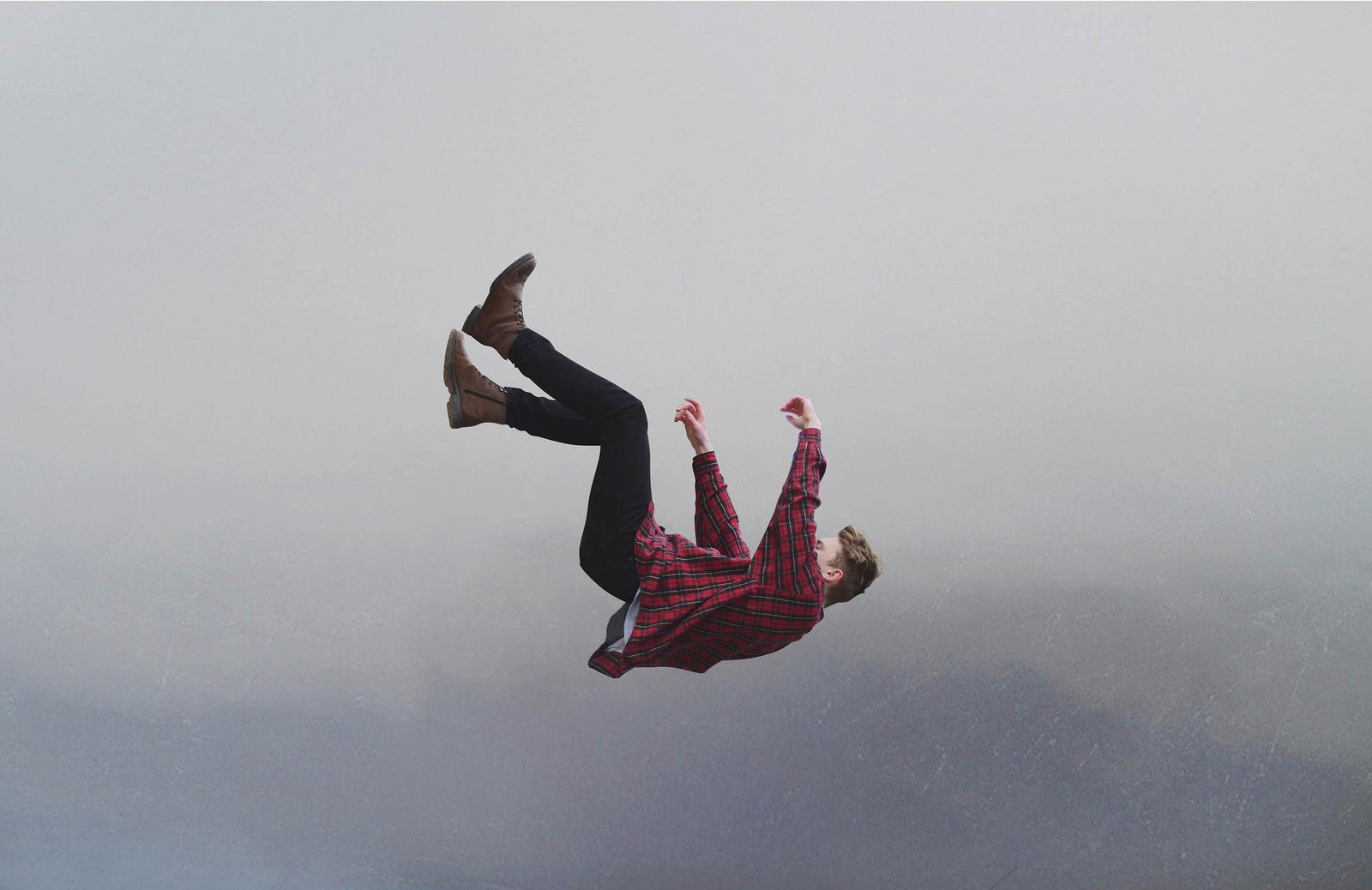Feeling of Falling When Sleeping

Usually, we consider sleep time as the most relaxing time of the entire day. We love to brush our teeth, slip into our pyjamas, turn off the lights, and just close our eyes and wait for peaceful dreams to take over.
But, oftentimes, instead of falling asleep, we experience a literal falling sensation. It's like a mini-dream in which you miss a step or trip on the stairs. Then, just before falling to the ground on your back, you wake up, and you realize you're safe in your bed.
What is this feeling, and why does it happen to so many of us?
The Hypnic Jerk
This shocking falling sensation is called the “hypnic jerk,” but you may also encounter it by the names of “hypnagogic jerk,” “myoclonic jerk,” or the simpler “sleep start.” In this article, let’s sleep with the commonly used “hypnic jerk.”
This weird phenomenon happens when our leg muscles—most often, although it can be other types of muscles as well—contract involuntarily. You know, like the feeling of a spasm or a twitch that you sometimes get when you're awake or after exercise.
Now, the reasons behind these involuntary muscle movements aren't that well understood by scientists. There are some theories that this hypnic jerk served two evolutionary functions in the past, one of which is relevant to this very day.
The first one has to do with our ancestors having to check their environments once again before going to sleep since there may have been hidden dangers lurking around.
The other function has to do with checking our body's stability and position before going to sleep, especially if sleeping was to happen on a tree (warding off predators). The hypnic jerk would be used to "test the ground," so to speak, before you truly become unconscious.
There's Another Theory
Now, a different theory proposes that the hypnic jerk happens as a result of our still active physiological systems, like the nervous system and the musculoskeletal system.
The hypnic jerk would then occur as a symptom of these systems giving in to the sleep drive and the unconscious state of our body. In that state, we move from volitional motor control (a.k.a. moving whenever we want) to a relaxed state and body paralysis (when we sleep, we are paralyzed so we don't act out on our dreams).
Are Hypnic Jerks Dangerous?
Hypnic jerks aren't dangerous, but they can sometimes be disconcerting enough to meddle with your sleep. They're a perfectly natural and normal phenomenon, and they're quite common, but some people may be too frightened by the experience, especially if they have it for the first time, which can affect their sleep short-term.
Hypnic jerks are essentially connected to motor activity, and basically, anything that promotes motor system activity at night will probably increase the chances of a hypnic jerk as well as its intensity.
So, What Should You Do to Prevent Hypnic Jerks?
In order to try and mitigate the occurrence, or at least the intensity of hypnic jerks, it's best to keep away from exercising too vigorously at night.
Also, be mindful of your caffeine use. Don't drink energy drinks, and don't drink coffee or black tea after 2–3 p.m. because the body needs at least six hours to work through the caffeine and release it from your system.
Hypnic jerks may also occur when you're too tired, have a highly irregular sleep schedule, or are downright sleep-deprived. That's why improving your sleep hygiene is also a key element in preventing hypnic jerks from happening.
Conclusion
Hypnic jerks are a very interesting phenomenon of a feeling of falling that a lot of people experience in the early stages of sleep. It's not a dangerous occurrence, but it can be uncomfortable and can sometimes affect your sleep.
That's why it's best to take better care of your body during the day, so it doesn't feel the stressful effects of daylight too much and return with a hypnic jerk or two.
